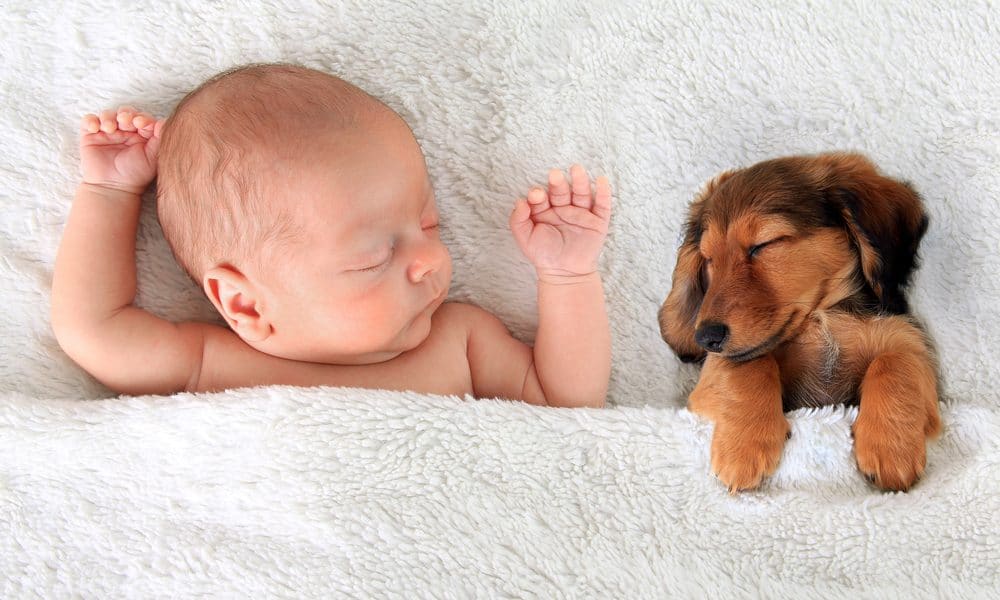Of course you love your pup like he’s your baby but when a newborn comes along, things change. Not only will a baby dramatically change your life and alter your daily routine, but your dog’s schedule will change too. He’ll get less of your time and attention and it may be difficult for him to come to terms with this, especially if he’s been the ‘only child’ for a while. More importantly, you’ll also need to teach your dog the skills he needs to interact safely with the new member of the family.
Don’t wait until the baby is home to get your pup adjusted to life with a new member of the family, start initiating the changes as soon as you can.
Begin by introducing your dog to the new sights, sounds and smells he’ll encounter when your bring your baby home, and associate these new things with rewards. For dogs that aren’t used to being around them, babies can seem like alien creatures! They make loud screeching sounds, they smell different, they look different and they move in strange ways so it’s a good idea to introduce your pup to as many baby like sights and sounds beforehand. This will help your dog learn to love life with the baby. Start playing recordings of baby sounds at low volume or alternatively, try using a realistic baby doll that makes noises to prepare your dog for what a real baby will look and sound like. You should also practice walking your dog with an empty pram to teach them how to behave on future walks with you and your baby.
You also want to make sure your dog is well trained well before the baby comes. He should know not to jump up and should respond to basic commands. He needs to understand that you are the pack leader and to follow your directions. A dog could accidentally hurt a baby just by jumping up in a friendly greeting so be sure to break any bad habits such as jumping long before the baby arrives.
If there are any areas of the house that will be out of bounds when the baby arrives, put this in place long before you bring your baby home. You don’t want your dog associating the baby’s arrival with the removal of privileges that he used to enjoy.
It’s crucial to stay calm when you and the baby enter the house. For the initial meeting between the dog and the baby, one person should hold the baby while another has control of the dog. Keep the dog in a leash while you bring him over to say hello. If you seem nervous and jumpy, your dog will pick up on your feelings and may become nervous as well, thinking that the bundle in your arms is something to worry about. Reward your dog for approaching the baby calmly and gently. Don’t shout at him for getting it wrong, just gently show him the right way to behave.
It’s completely reasonable to feel a little nervous about letting your dog get close to your newborn. If you do, just introduce them slowly. As the baby settles in, continue to focus on associating good things with your dog. Try to give your dog attention when the baby is there. If you can teach your pup that when the baby is around, he gets treats, he’ll learn to love it when the baby is awake and active because that’s when good things happen. Obviously this is easier said than done – but simple things such as feeding the dog and the baby at the same time, or walking your dog and baby at the same time can help.
Don’t forget that dogs pick up on emotions and body language. So when your baby is crying, it might be a good time to put your dog in a crate or another room to remove it from the stressful situation. This will allow you to focus your attention on the needs of your baby, and never put your baby and your dog in a bad position by leaving them alone together. Accidents can happen even with the most well-behaved dogs. Prevent mishaps by never leaving your baby unattended in a room with the dog.


